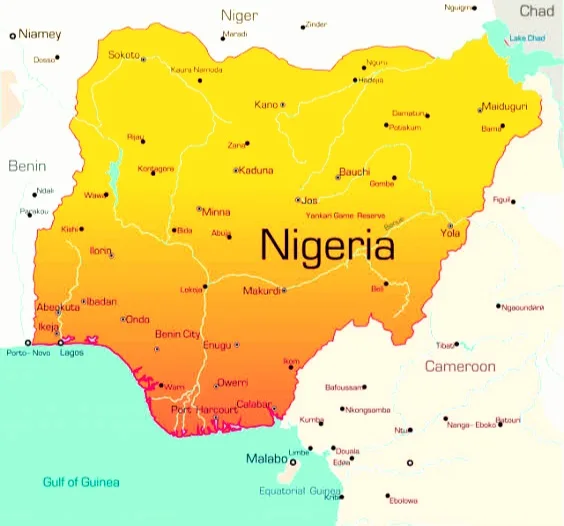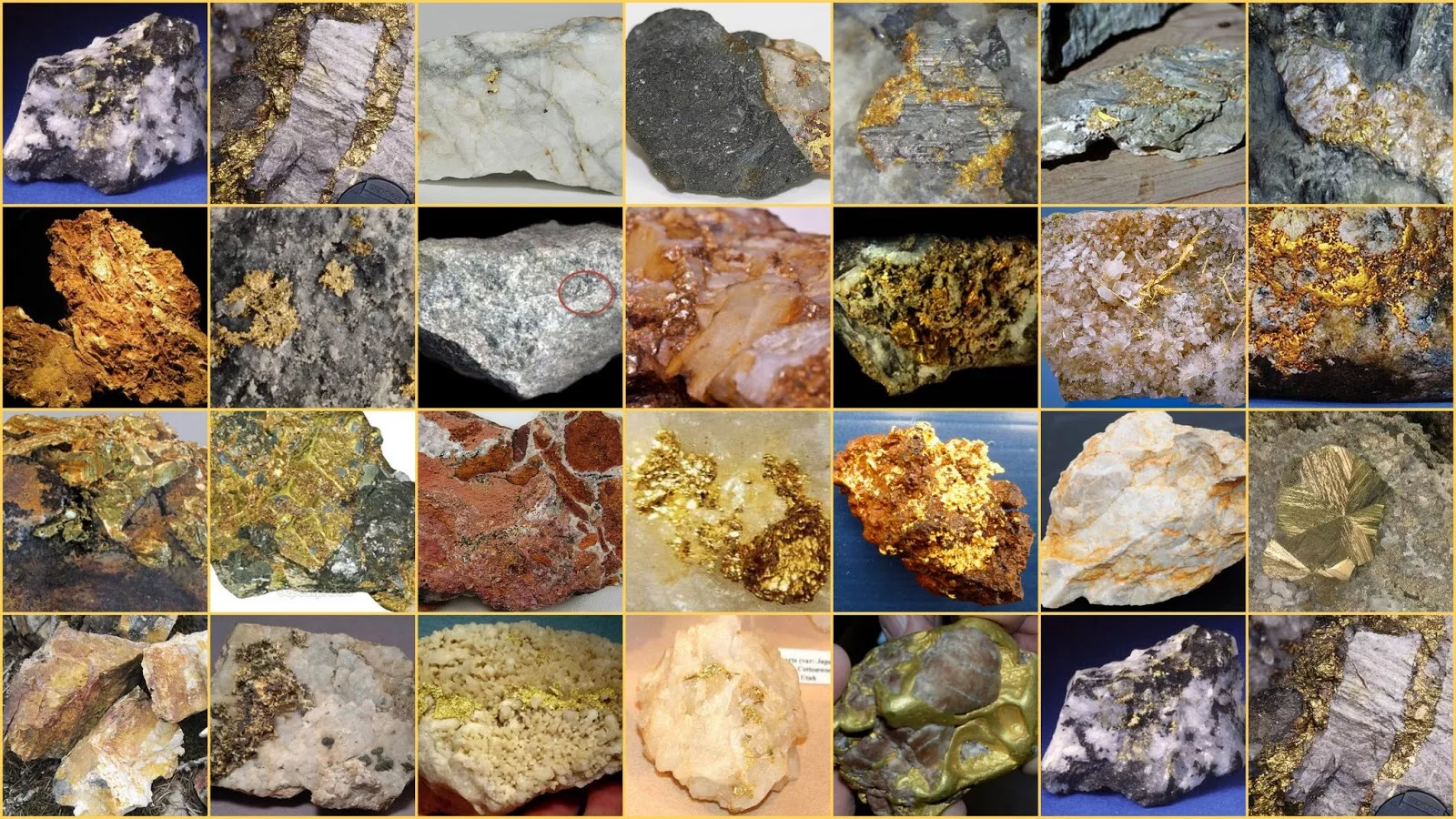Full List of Coastal States in Nigeria
Nigeria is a West African country that is known for its beautiful coastal areas. The country has a coastline of approximately 853km facing the Atlantic Ocean. The coastline runs through seven southern states of the federation, including Lagos, Ondo, Delta, Bayelsa, Rivers, Akwa Ibom and Cross Rivers. In this article, we will explore and list all the coastal states in Nigeria, highlighting their unique characteristics and attractions.
Each of these coastal states in Nigeria has its unique features and natural resources, making them popular tourist destinations. Lagos State, for example, is known for its private beaches, including the Elegushi Beach and the Tarkwa Bay. Delta State is home to the Araromi and Suntan beaches, while Cross River State boasts of the beautiful Calabar Beach.

Apart from tourism, the coastal areas in Nigeria are also important for fishing, oil exploration, and other economic activities. However, these areas are also prone to environmental degradation due to human activities and natural disasters such as floods and erosion. The government and other stakeholders have a role to play in ensuring the sustainable use of these coastal areas.
LIST OF MAJOR COASTAL STATES IN NIGERIA
Nigeria is home to a number of coastal states that offer an enchanting blend of natural beauty and cultural diversity. Let’s delve into the coastal states of Nigeria, each with its own distinct charm.
1. LAGOS STATE
Lagos State, located in the southwestern part of Nigeria, is not only the most populous state but also a major economic and financial hub in Africa. With its vibrant cosmopolitan atmosphere, Lagos offers a unique coastal experience. From the bustling beaches of Tarkwa Bay and Elegushi to the historic sites of Badagry, Lagos State has a lot to offer for beach enthusiasts and history buffs alike.
2. AKWA IBOM STATE
Nestled in the southern part of Nigeria, Akwa Ibom State is known for its stunning coastline along the Gulf of Guinea. The state boasts pristine beaches such as Ikot Abasi and Ibeno, where visitors can relax and enjoy the beauty of the Atlantic Ocean. Akwa Ibom State also offers opportunities for water sports, fishing, and exploration of the mangrove forests.
3. CROSS RIVER STATE
Cross River State, located in the southeastern part of Nigeria, is renowned for its unique blend of culture, wildlife, and beautiful coastline. The state is home to the famous Obudu Mountain Resort, which offers breathtaking views of the surrounding landscapes. Along its coastline, Cross River State features stunning beaches like Calabar Beach, where visitors can enjoy sunbathing, swimming, and beachside picnics.
4. DELTA STATE
Situated in the Niger Delta region, Delta State boasts a scenic coastline that stretches along the Atlantic Ocean. The state is famous for its numerous oil and gas reserves, but it also offers a tranquil coastal experience. The popular beach destinations in Delta State include Abraka Beach and Araya Beach, where visitors can indulge in water sports, boat rides, and relaxation.
5. BAYELSA STATE
Known as the “Glory of All Lands,” Bayelsa State is located in the southern part of Nigeria and is primarily an oil-producing state. The state’s coastal region is characterized by beautiful mangrove forests and serene beaches. Some of the notable beaches in Bayelsa State include Twon-Brass Beach and Odioma Beach, providing visitors with opportunities for leisurely walks, birdwatching, and boat cruises.
6. RIVERS STATE
Rivers State, situated in the Niger Delta region, is a vibrant and culturally diverse state with a stunning coastline. The state is home to Port Harcourt, the capital city, and boasts picturesque beaches such as Finima Beach and Onne Beach. Visitors can enjoy various water activities, explore the local cuisine, and experience the warmth of the Rivers people.
7. ONDO STATE
Ondo State, located in the southwestern part of Nigeria, is blessed with a beautiful coastline along the Atlantic Ocean. The state offers a tranquil and serene coastal experience, with beaches like Aiyetoro Beach and Igbokoda Beach attracting visitors with their pristine sands and clear blue waters. Ondo State’s coastal communities also showcase a rich cultural heritage, with traditional fishing activities and festivals that celebrate the maritime traditions of the region.
8. EDO STATE
Edo State, situated in southern Nigeria, is not directly located on the coast but is in close proximity to the coastal region. The state is known for its historical significance and cultural landmarks. While not having direct access to the coastline, Edo State offers easy access to neighboring coastal states, making it a gateway for those seeking coastal adventures in Nigeria.
9. OGUN STATE
Ogun State, located in southwestern Nigeria, shares a border with the Atlantic Ocean and has a coastline that stretches along the Gulf of Guinea. The state boasts picturesque beaches such as Ilashe Beach and Tarkwa Bay Beach, where visitors can relax, enjoy water sports, and soak up the sun. Ogun State’s coastal areas also provide opportunities for fishing, boat tours, and exploration of nearby islands.
NATURAL RESOURCES
Nigeria is blessed with an abundance of natural resources, including both land and water-based resources. The coastal states of Nigeria, in particular, have a wealth of natural resources that contribute significantly to the country’s economy.
The natural resources found in the coastal states of Nigeria include oil and gas, limestone, clay, glass sand, and tar sand. These resources are mainly found in the Niger Delta region, which is the largest delta in Africa. The Niger Delta region is also home to Africa’s largest expanse of mangroves, which are major breeding and nursery grounds for many commercially important fish species.
The coastal waters of Nigeria are also rich in fish and other marine life, making fishing an important economic activity in the region. The coastal states of Nigeria also have significant tourism potential, with their beautiful beaches and rich cultural heritage attracting tourists from all over the world.
In addition to these natural resources, the coastal states of Nigeria also have significant agricultural potential, with fertile land suitable for growing crops such as rice, cassava, and yams. The coastal states of Nigeria also have a significant forest cover, which provides timber and other forest products.
TOURIST ATTRACTIONS
Nigeria’s coastal states are home to some of the most beautiful beaches and tourist attractions in the country. From private beaches to family-friendly spots, there’s something for everyone to enjoy.
One of the most popular tourist attractions in Delta State is the Asaba Beach, which boasts stunning views of the Niger River. Visitors can take boat rides or enjoy water sports in the calm waters.
In Lagos State, Tarkwa Bay and Elegushi Beach are popular destinations for tourists and locals alike. Tarkwa Bay is a private beach that can only be accessed by boat, while Elegushi Beach offers white sand and golden sand for visitors to relax on.
La Campagne Tropicana is another must-visit attraction in Lagos State. This resort offers a range of activities, including water sports and boat rides, as well as accommodation for those looking to stay overnight.
For those looking to explore the beaches in the southeast region of Nigeria, the Atican Beach and Oniru Beach in Lagos State are great options. Ibeno Beach in Akwa Ibom State is also a popular destination for tourists, with its clear waters and white sand.
Araromi Beach in Ondo State is another hidden gem that is worth a visit. This secluded beach offers a peaceful retreat away from the hustle and bustle of the city.
In Kwara State, tourists can visit the Patigi Beach, which is known for its beautiful scenery and calm waters. Unwana Beach in Ebonyi State and Ifoko Beach in Cross River State are also popular destinations for those looking to enjoy a relaxing vacation by the sea.
DEMOGRAPHICS
Nigeria is the most populous country in Africa, with an estimated population of over 202 million people in 2023. The country is divided into 36 states and one federal capital territory, each with its own local government areas. Nigeria is a federation with a presidential system of government.
The coastal region of Nigeria stretches across eight states, which are estimated to account for 25% of the national population. These states include Abia, Anambra, Benue, Ekiti, Imo, Jigawa, Kebbi, Nasarawa, Osun, Oyo, Plateau, Sokoto and Taraba.
The three largest ethnic groups in Nigeria are the Hausa, Yoruba and Igbo, which make up 25%, 21% and 18% of the total population respectively. Other Southern populations include the Ijaw, Efik, Ibibio, Annang and Ogoni, while the Tiv, Urhobo-Isoko, Edo and Itsekiri inhabit Nigeria’s Midwest.
Nigeria’s demographics are characterised by the youthfulness of its population, with a median age of 18.5 years in 2026. The country’s population is projected to grow from more than 186 million people in 2016 to 392 million in 2050, making it the world’s fourth most populous country. The high population growth rate is expected to continue for the foreseeable future due to population momentum and a high birth rate.
In terms of housing, Nigeria faces a significant housing deficit, with an estimated 17 million housing units required to meet the needs of its growing population. The government has implemented several policies and initiatives to address this deficit, including the National Housing Fund and the Family Homes Fund.
CONCLUSION
Nigeria’s coastal states offer a wealth of natural beauty, cultural heritage, and recreational activities for visitors to enjoy. From the bustling beaches of Lagos to the serene shores of Bayelsa, each coastal state has its own unique charm. Whether you seek relaxation, adventure, or a glimpse into Nigeria’s maritime history, the coastal states of Nigeria are sure to leave you with unforgettable experiences.
FREQUENTLY ASKED QUESTIONS
- Which is the most populous coastal state in Nigeria?
Lagos State is the most populous coastal state in Nigeria.
- Which state has largest coastline in Nigeria?
Ondo State takes the lead in this regard, boasting a shoreline that stretches across approximately 180 kilometers. Notably, Ondo State’s extensive coastline plays a significant role in Nigeria’s economy as it is a hub for crude oil, which serves as the backbone of the nation’s economy.
- Are there any wildlife reserves or national parks in the coastal states of Nigeria?
Yes, some coastal states, such as Cross River State, have wildlife reserves and national parks that showcase the rich biodiversity of the region.
- Can I engage in water sports activities in the coastal states?
Yes, many coastal states offer opportunities for water sports activities such as swimming, surfing, jet skiing, and fishing.
- Are there any luxury resorts or accommodations available along the coastline?
Yes, several coastal states have luxury resorts and accommodations that cater to tourists and provide a comfortable stay near the beaches.
- Are the coastal states of Nigeria safe for tourists?
Like any travel destination, it is advisable to exercise caution and adhere to local guidelines and recommendations. Generally, the coastal states of Nigeria are safe for tourists, but it’s always important to stay informed and take necessary precautions.
